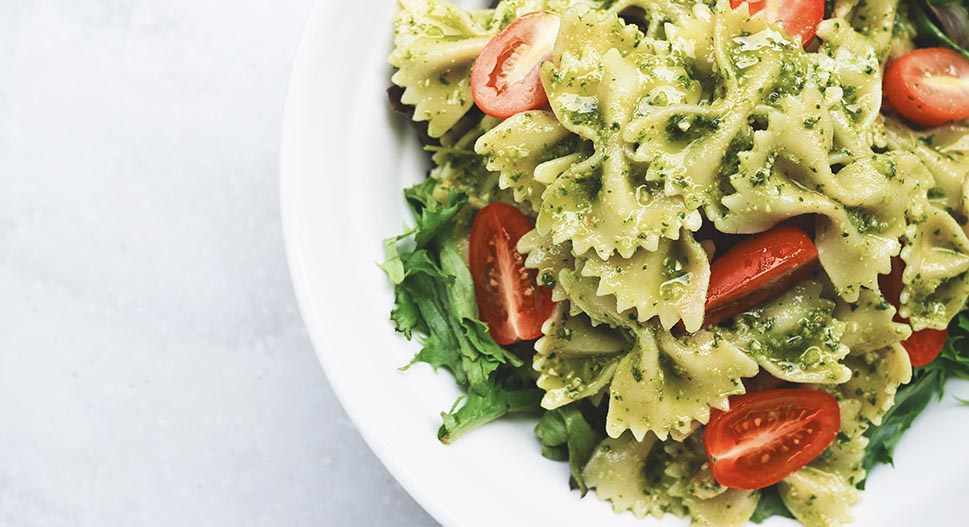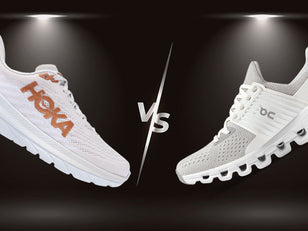
Carbohydrates get an undeserved bad reputation when it comes to fat loss. They’ve been demonised by many widespread claims, such as:
- ‘Carbohydrates signal you to store calories’
- ‘Carbohydrates stop you burning fat’
- ‘I will burn more fat on a low carb diet’
- ‘I lost weight on a low carb diet’
Sound familiar?
Is there truth in these claims?
As with many nutrition based myths, some of these claims start with a grain of miss understood or misinterpreted science. For example, let’s take a look at the first claim:
CLAIM 1: ‘Eating carbohydrates switches off fat burning’
The claim that eating carbohydrates switches off fat burning is actually true. When we eat carbohydrates, the following happens:
- Our body detects that a source of readily available energy is now present
- This triggers insulin production
- Insulin signals to the brain that there is plenty of energy available and we don’t need to breakdown stored energy (fat) at that moment
- As such fat burning is temporarily turned off
It makes sense, right? Why would we be breaking down stored energy for use when there is already accessible energy there ready to be used?
But what is crucial to understand is this response is actually a good thing. It is essential to health. High levels of blood glucose which occur after meals are dangerous if we don’t quickly lower them by shuttling that glucose into muscle, liver and fat cells to be stored. High blood glucose levels are the hallmark of type 2 diabetes and being able to manage your blood glucose levels efficiently is a marker of metabolic health.
Find out why multi-grain carbohydrates are also good for maintaining gut health >
CLAIM 2: ‘If carbohydrates stop us burning fat, isn’t that bad for fat loss?’
No, because this is only for an acute period of time i.e. just after a meal. Between meals you will again use stored energy (fat) for fuel. And at the end of the day if you are in a negative energy balance, i.e. you’ve used up more energy via activity than you have taken in from food, then you will be utilising your fat stores for energy and thus losing fat.
So if two people eat the same total calories but one eats more carbohydrates and the other eats more fat, the total amount of body fat utilised for energy at the end of the day will be the same. And thus, they will lose the same amount of body fat. And so it is the ENERGY BALANCE and not the carbohydrate content of your diet that dictates fat loss.
This leads on to one of my favourite low carb claims:
CLAIM 3: ‘Surely I will burn more fat on a low carb diet’
This is true and also glaringly obvious. On a low carb diet, you eat more fat. As such, you burn more fat. However this is dietary fat and NOT body fat. You do not burn more body fat on a low carbohydrate diet. This has been shown time and time again through scientific research, such as this current meta analysis. The research concludes that:
'Higher carbohydrate diets do not increase the risk of obesity. It is an excess of calories, not an excess of carbohydrates per se, that lead to weight gain.'
Now we have got that out of the way, let's look at another popular argument for low carb diets:
CLAIM 4: ‘But I lost weight on a low carb diet’
There is an undeniably larger increase in initial weight loss on a low carb diet. Notice I have used the term ‘weight loss’ here NOT fat loss. That is because the weight lost at the start of a low carb diet is mostly water weight.
Carbohydrate stores, unlike fat stores require a lot of water to store. Each gram of stored carbohydrate requires 3-4g of water and given we store ~500g of carbohydrates when are muscles are full, if we deplete these stores we stand to lose ~2kg of weight from water (not fat!). This can make it seem like a low carb diet is far superior, but you’ve actually not lost any more body fat than you would have on a higher carbohydrate diet.
And here lies the problem of using the scales as a measure of fat loss... but that is for another article!

Wrapping up
- The consumption of carbohydrates does mean your body will preferentially burn carbohydrates over fat straight after meals, BUT this does not mean you will burn less stored body fat, which is the goal of a fat loss diet.
- Although you may experience more weight loss initially on a low carb diet, this weight is not fat. It is WATER.
- Given the same calorie deficit, you will lose just as much body fat on a high or low carbohydrate diet.
Take home
- Low carbohydrate diets work. BUT they work in the same way as any other diet – simply by restricting your calorie intake. Knowing this gives you the freedom to eat carbohydrates if you wish, while still losing body fat.
- The best diet is a diet that you can stick to. The one that gives you the most freedom and makes you feel the least restricted tends to be the one that is going to suit you best.
- If you enjoy eating a low carbohydrate diet then that is great, if you enjoy eating a high carbohydrate diet you can. And, if you want to jump between the two while maintaining your calorie target, you will not hinder fat loss.
Next Up:
Discover the underestimated benefits of NEAT on overall body composition >
What is flexitarianism and should I try it? >





























































